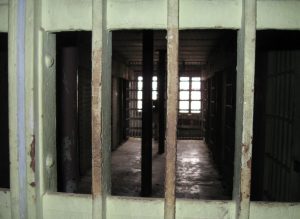In today’s prison system, the mentally ill are more likely to spend their time in jail than getting help for their condition. And the prison system has failed its inmates with mental disorders more times than not.
Mental Illness in U.S. Prisons
 About 400,000 inmates in the U.S. prison system are estimated to be mentally ill. Many times, the person’s disorder is responsible for landing them in prison, and then they continue to go without treatment. This cycle can continue on repeating itself for years without the proper treatment.
About 400,000 inmates in the U.S. prison system are estimated to be mentally ill. Many times, the person’s disorder is responsible for landing them in prison, and then they continue to go without treatment. This cycle can continue on repeating itself for years without the proper treatment.
People who are mentally ill are ten times more likely to be incarcerated than hospitalized. During a panel discussion hosted by the American Enterprise Institute in Washington, D.C., it was stated that the mentally ill inmate population is equivalent to the entire population of Oakland, California. It was also stated that an average of 5,000 people with serious mental illness are booked into jails per day.
These people end up getting arrested for crimes ranging from small to large, such as trespassing or violent felonies. The most common mental illnesses in U.S. prisons are schizophrenia or bipolar disorder, which will only get worse without the proper care.
Post-jail treatment
When mentally ill inmates are released from jail they are at a higher risk of being convicted of another criminal offense. Housing and employment are the biggest challenges for the mentally ill when they are released from prison. What these people really need is a place to learn how to cope with their illness so they can survive in the real world.
The best solution is to get them to work with a psychiatrist after being released from jail who can help them get a job and find a place to live. Programs like that are what’s lacking from the system.
Photo by David Quigley


